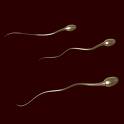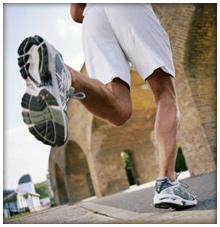By Avril OConnor
London: Botox, skin polishing and laser hair removal are the three most popular treatments for metrosexual City man the heterosexual male who shamelessly takes pride in his appearance. And according to experts there are an increasing number of them.
There is a huge demand for competent aesthetic treatments for men of all descriptions. We’re fantastically vain, says Dr Dr Séan Cummings of the Freedom Health clinic in Wimpole Street.
Since it was set up in 2003, Freedom Health has seen a shift from a mainly gay clientele wanting aesthetics, to increasing numbers of heterosexual men who like to bring the girlfriend along for a treatment too.
Dr Cummings says men tend to choose corrective treatments in preference to indulgent pampering. The number one treatment for men is Botox and increasingly facial fillers such as Restylane in which a natural substance called hyualuronic acid is injected into lines and is gradually reabsorbed into the body.
Men like fillers because they’re not “poofy” but a rather technical processes which just fills the line there and then with no creams involved. The unexpected trend with Restylane is the number of men who want their lips enhancing – yep, straight guys, says Cummings.
The increase in men seeking dermatological care is also being driven by stressful lifestyles and City pollution. Dermatologists have identified a specific London skin condition called City Skin Sydrome in which previously unblemished individuals suffer a sudden outbreak of acne, or acne and rosacea. Skin may also develop uneven pigmentation as well as a general decline in condition with blackheads open pores and congestion which manifests itself as bumps.
Explains Dr Cummings: Its a common skin problem in London caused by one or all of the following – pollution, dirt, and wild living with excess alcohol and fags which leaves your skin damaged, dehydrated and dull looking. This can be corrected with either a sequence of chemical peels or microdermabrasion.
Dr Cummings says has also identified another male skin phenomenon in the capital Visor Face.
These are usually motorcyclists who leave their visor up and get bombarded by wind and dirt as they ride which damages their exposed skin leaving a bright red collection of broken capillaries on their cheeks. This is easy to correct using lasers. Treatment is easy, fast and with quite astonishing results.
Sarah Payne, General Manager, City SkinKlinic says: Men are seeing more and more in the media about these procedures and are becoming increasingly more confident about it themselves. They also want to look younger and healthier in the workplace. This can be due to an increasingly competitive work environment where perhaps they may be up against women of the same age who look younger.
The most popular treatments are:
Botox
Botox works by paralysing the muscle into which it is injected and ironing out the wrinkle. The most popular areas for men to be treated are the Glabella, frown lines. Men do have stronger facial muscles and may require a larger solution than a woman would. Sometimes Botox alone may not be enough to soften the lines and a dermal filler may be required. It can take up to two weeks to take effect. Botox is also used as an effective treatment in the armpits to control sweating. Costs: from £190. Available at Freedom Health, 19 Wimpole Street, W1, T: 020 7323 9007 www.freedomhealth.co.uk and City SkinKlinic, 12 Brushfield Street, London E1 6AN www.cityskinklinic.co.uk T: 0207 655 6920
Facial fillers
Restylane and other fillers are extremely popular – at least as popular with males as females. The most usual lines to fill are the naso-labial (nose to mouth line) and glabellar grooves (forehead frown) and lips. Restylane is a nice safe treatment because it uses a natural substance, hyualuronic acid, which is injected into the skin which has the effect of immedicately plumping out the line so giving an instant effect but also “feeding” skin with moisture over a prolonged period. Restylane treatments will last anywhere between 6 and 12 months. Treatment takes about 40 minutes. Prices from £ 200. Available at Freedom Health and City SkinKlinic as above.
Hair Removal
PERMANENT
Intense Pulsed Light (IPL) is used to kill the hair follicle root and most parts of the face and body can be treated as well as in-growing hairs that cause shaving bumps and irritation. Great for backs, chests, tidying up the hairline on the back of the neck and ingrown hairs from shaving and from irritation from shirt collars. A consultation is required to determine the number of treatments required and the intervals between each session. A course of at least 6 treatments is generally recommended to achieve the best results. Treatment prices are determined by the time taken. The table below is intended as a guide to indicate the likely cost of an area. The factors which will be considered at consultation are the density of hair growth and size of treatment area.
A consultation and patch test is required 7 days prior to beginning treatment as not all skin and hair types are suitable. The removal of hair from the back for example would cost from £360 a session and several sessions may be required. Available at Freedom Health and City SkinKlinic.
WAXING
The traditional hair removal treatment in which hot wax is applied to the area and stripped taking away the hair. The usual areas for men to be treated are shoulders, chest, full leg, back, back and shoulders and arms. Costs from £30. Available at Freedom Health and City SkinKlinic. Also using Aveda products at the Gina Conway Aveda Lifestyle Salon & Spa, 62 Westbourne Grove, W2.
Microdermabrasion
This treatment usually uses aluminium oxide crystals which are fired at the skin to remove all the dead and dull skin cells leaving a bright and refreshed face. It will leave the face pink but this subsides in a few hours. It is also good for open pores, blackheads and some acne related conditions as an option to glycolic peels. The exfoliation will increase the penetration and so the effectiveness of homecare products for up to two weeks after the treatment. Can be used in combination with facials and takes about 40 minutes. Costs from £110 Available at Freedom Health and City SkinKlinic. Freedom Health which is offering a trial session of 20 minutes for £50.
SKIN PEELS
Glycolic Peels
Using natural fruit acids, these peels are a quick and effective method of improving the skin on the face or body through removal of dead skin cells. Glycolic acid helps to reduce fine lines, close pores and may also improve sun damage, scarring and hyper-pigmentation. Good for fragile skins, congestion, acne and open pores. Glycolic peels are light with no down time. Make up can be applied after treatment. Time: 45 mins first session, the rest only 30mins. Single session from £90
TCA (Trichloracetic acid)
Medical strength Trichloracetic acid (TCA) peels are used to correct deeper skin damage, improving pigmentation, acne scarring, freckling, sun damage, and melasma/chloasma (hormonal pigmentation). These peels are collagen boosting so good for fine lines and ageing skin. A consultation is required to assess existing skin damage and create a treatment programme. Time: First appointment 1 hour, rest of sessions 30 mins each. Cost: £175 per treatment.
Obagi Blue Chemical Peel
This is a very controlled but very deep peel yielding excellent results. Clients need one week off work because the very marked peeling effect but excellent treatment which reduces lines; sun damage, cancerous cells and revives underlying collagen. Pre-preparation using a sequence of products is needed. The products themselves have a super effect. As well as having an anti-ageing effect they are also terrific for acne treatments giving a good control without antibiotics and a nice smooth finish with scar reduction. Prep takes 6 weeks of using the Obagi products and the peel will take an hour to complete. Then there is the week downtime. Cost: from £400. Available at Freedom Health and City SkinKlinic.
VEIN TREATMENTS
Thread, broken or spider veins, Campbell de Morgan spots (small flat red spots caused by broken capillaries) and rosacea on the face and body can be treated by Intensed Pulsed Light (IPL) or ND Yag laser which destroys the broken capillary or by scelerotherapy in which a microinjection removes the vein. Time: 20-30 minutes. A medical consultation may be required to determine suitability for treatment including a patch test, the most appropriate method and the number of sessions required. Cost: from £150. Available at Freedom Health and City SkinKlinic.
Advanced Electrolysis
Electrolysis, which uses an electric current, is an excellent method for removing hair, especially for smaller areas such as cheekbones or ears, for light or colourless hair and on darker skin types. Advanced electrolysis can quickly remove skin tags, whiteheads and warts. Consultation is required prior to treatment. Prices from £25 for 15 minutes (hair) and £50 for 15 minutes (skin tags, warts and whiteheads). Available at Freedom Health and City SkinKlinic.
Lipotherapy
Lipotherapy tightens and firms and is also a dramatic fat reducing treatment. A fat dissolving herbal concentrates is infused into the skin through an electrically charged roller. This herbal concentrate breaks down the stored fat (cellulite) and converts it into liquid which is dissolved in the body. As Lipotherapy is completely computerised, the depth of penetration can be tailored, from 0.1 cm to 10cm depending of the therapist’s assessment. Results are visible after one treatment but a course of ten is recommended. Exercising in combination with the programme also improves results. Costs: £80. Available at The Janet Ginnings Hair & Beauty Salon, 45 Curzon Street, W1. T: 020 7499 1904/2767
The Ultimate Body Treatment
A powerful hi-tech body lifting treatment that uses a combination of faradic (intermittent) and galvanic (constant) micro currents to stimulate with deeply-penetrating skin care. Combined with intensive fat-burning formulations, muscles are toned and the skin texture smoothed. The skin is prepared with firming and anti-water retention creams before two and four pads are placed on each buttock from the lower back to the upper leg.
You will see an immediate improvement after one treatment but a course of 10 is recommended for lasting results. This treatment lifts the abdomen, thighs, butt, bust and upper arms. One treatment equates to going to the gym for about four hours and doing a strong work out aerobic and resistance workout. Cost: from £55Get 10% discount when booking a course of 10. Available at The Janet Ginnings Hair & Beauty Salon, 45 Curzon Street, W1. T: 020 7499 1904/2767
Ultratone Sports Programme.
Ultratone has a biostimulation sports programme that is used by the French National football team and endorsed by leading physiotherapists. Pads direct electrical impulses to stimulate and work the muscles. The lymphatic drainage treatment is particularly good for active men as this helps the body to repair itself far more efficiently and much faster. Using the Ultratone sports programme, the therapists can also build and strengthen muscles – measurable results are achieved within 6 weeks. The Sports programmes are from £30 per session. Ultratone salon is based on George Street, W1, T:020 7935 0631 The treatment is also available as a home kit – The Ultratone Athletic retails at £349 – stockists on Ultratone’s booking number as above
Facials
Ayurvedic massage
Customised treatments which use ancient Eastern Ayurvedic healing philosophies and natural oils. Each treatment is specially designed using blended oils and balancing techniques to revive, restore and revitalise the mind and body
The Elemental Nature Facial for Self Renewal – allow 1 hour and 30 minutes. Includes custom blended oils and products from Aveda, refinement, customised massaged techniques and a personalised masque with a custom blended foot exfoliation, hand and arm massage, foot massage, warm oil scalp massage and energy balancing movements. Cost: £90.
Caribbean Indulgence Wrap – allow 1 hour and 30 minutes. Using refreshing mango and lime form the Caribbean to restore and renew the body. The treatments begins with a dry exfoliation and you are then enveloped in a detoxifying rum, ginger and Seaweed Masque whilst your face and scalp are massaged with calming floral water. Your treatment is followed with a refreshing shower and a nurturing body massage using a Caribbean Cream to complete this island inspired luxury treat. Cost: £120. Available at Gina Conway Aveda Lifestyle salon & Spa, 62 Westbourne Grove, W2
City Decongestion Masque
For congested, tired, dull skin. Also treats active acne and for those with City Skin Syndrome where city life, traffic pollution and working conditions have unbalanced the skin resulting in imperfections such as congestion, uneven tone and texture and acne outbreaks.
This facial uses microdermabrasion to exfoliate the skin, removing dead skin cells which increases the penetration of the vitamin serum applied before the masque. The benefits of the exfoliation will continue for up to two weeks increasing the penetration of home care products.
Good for all skintypes and particularly good for male skins. Not for dehydrated or sensitive skins or those with vascular or rosacea conditions. Takes1 hour and 15 minutes. Cost: £145. City SkinKlinic
Crystal Clear Skin Treatment
Crystal Clear is a range of rejuvenating skin treatments including oxygen therapy and microdermabrasion. Its signature Clear Skin treatment is designed to replenish the skins natural oils which can be stripped by daily shaving. It soothes and nourishes the skin, leaving a smoother and suppler texture and a back massage is included to relieve aching muscles. The skin is first cleansed and exfoliated, then gently massages to improve circulation. This is followed by a lifting and firming mask containing a range of natural ingredients including Algae Gel and Wheat Amino Acids to stimulate the skin, plumping up collagen and removing impurities. A little self-tan is mixed with moisturiser to complete the treatment which takes an hour, resulting in a natural healthy glow. Cost £50. Amara Spa, 18-20 Fulham High St, SW6; T: 0207 384 9111; Belgravia Health & Beauty, 39 Lower Belgrave Street, SW1, T: 0207 730 1009; Emporium, 90 York St, W1, T: 0207 723 6650; Glitz Advanced Beauty, 29 Elystan St, SW3 3NT, T: 0207 052 0900 ; Hurlingham Clinic & Spa; 67 Studdridge St, SW8, T: 0207 348 6380; Kensington Close Health Club, Kensington Close Hotel, W8, T: 0207 368 4005; Qetesh Spa, Cannons Health Club, SW11, T: 0207 228 4400; Tranquil Beauty 406 Edgeware Rd,W2. T: 0207 224 9757For other salons 08705 934 934 or visit www.crystalclear.co.uk.
O2 Gold Rush Facial for Gents
A rich, glorious facial from skincare specialists, P8N8, is a concentrated moisture and mineral rush in a golden peptide mineral mask that leaves the skin smooth, soft, supple and luminous. The treatment lasts 25-30 minutes. Costs £25. At the Temple Beauty Spa & Holistic Escape, 30 Filmer Road, SW6, T: 0207 386 7813
Sothys Whisky a go-go Facial
The Sothys Whisky a go-go treatment hydrates dry skin and is particularly beneficial for skin sensitised by both wet and dry shaving. Phytomalt, one of the main active ingredients is an extract is obtained from the residues of the distillation of Scottish malt whisky and is rich in proteins, vitamin B and minerals. The treatment begins with a relaxing deep shoulder; neck and upper chest massage which then concentrates on the hair and scalp. The entire face and neck area is cleansed with a detoxifying active cleanser to remove any excess oil, dirt and dead skin cells and steamed towels are placed over the skin to ensure maximum benefit of the products applied to the skin. A rejuvenation cream mask is massaged into the skin. It is followed by the application of a peel off mask with Vitamin C and ginseng removed after 10 minutes. Finally the skin is moisturized and a hydra-tonic mist is lightly sprayed over the face and chest to end the treatment. Cost £50. Available at Martyn Gayle Hairdressers, 102 Westbourne Grove, W11. T: 020 7243 6047.















